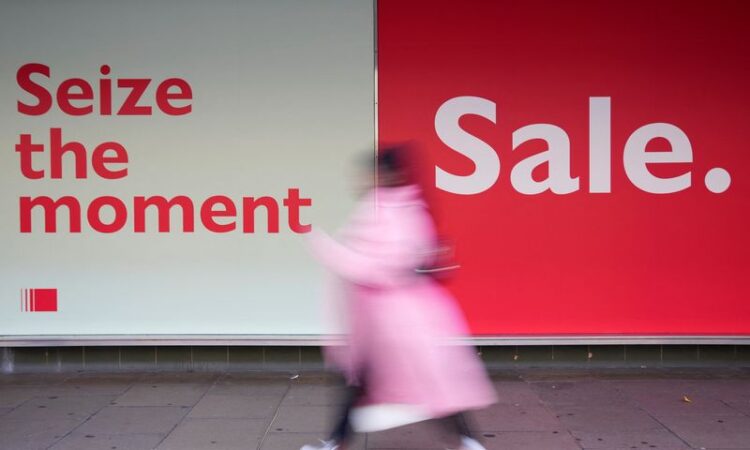
LONDON (Reuters) – The British public’s expectations for future inflation fell last month, according to a survey from Citi and YouGov which the U.S. bank said showed a reduced risk that a recent 41-year high in inflation would become entrenched.
The BoE closely watches surveys of households’ inflation expectations, as it believes they can offer a guide to future wage demands and businesses’ ability to pass on higher costs.
Citi said the average expectation for inflation in five to 10 years’ time dropped to 3.6% in December from 3.9% in November. It peaked at 4.8% in August, before the government announced plans to temporarily cap household energy tariffs.
Prior to the pandemic, when consumer price inflation was broadly in line with the BoE’s 2% target, these longer-term inflation expectations averaged between 2.9% and 3.4%.
Inflation expectations for 12 months’ time dropped to 5.7% in December from 6.1% in November, and peaked at 10.3% in August where survey participants were given a wider range of potential options for inflation than had been typical before the pandemic.
“Today’s data, especially the easing in long-term expectations, suggest that some of the upside risks that have stalked UK inflation expectations in recent months are beginning to soften,” Citi economist Ben Nabarro said.
“It would be premature to declare victory. But these data to point to a moderating risk of more embedded inflation through 2023,” he added.
GRAPHIC : UK public inflation expectations cool further – Citi/YouGov – https://fingfx.thomsonreuters.com/gfx/polling/lbpgggkrjpq/Pasted%20image%201672834442678.png
British consumer price inflation reached its highest level since 1981 in October at 11.1%, before dropping to 10.7% in November. The BoE has said it expects inflation to remain high over the coming months, but to fall to about 5% by late 2023.
Much of the surge in inflation reflected a jump in natural gas prices after Russia invaded Ukraine in February, but post-pandemic supply-chain bottlenecks, labour shortages and trade frictions caused by Brexit have also played a role.
(Reporting by David Milliken, editing by Andy Bruce)






